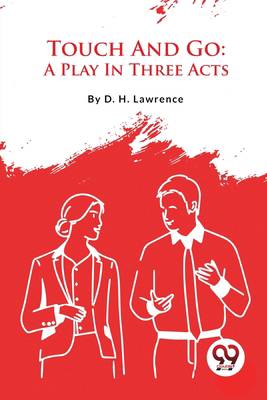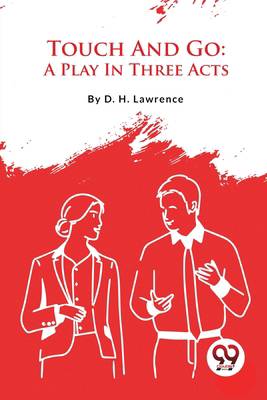
- Afhalen na 1 uur in een winkel met voorraad
- Gratis thuislevering in België vanaf € 30
- Ruim aanbod met 7 miljoen producten
- Afhalen na 1 uur in een winkel met voorraad
- Gratis thuislevering in België vanaf € 30
- Ruim aanbod met 7 miljoen producten
Zoeken
Omschrijving
When the miners threaten to go on strike, Gerald Barlow, the colliery master in Touch and Go, behaves in accordance with form and is disdainful and unwavering. It's not their narrative; it's his. Gerald has modernized the pit and dehumidified the employees since his father before him was too lenient with the guys, and he has nothing but contempt for their efforts to exert authority. They make an effort each day. They lack the intellect to run contemporary business, hence they could never do it. They are not intelligent living forms. The owners might not have much, but Labour does not. They are merely mechanical cubes that can do one or two moves before being finished. They are as ignorant of life as a lawnmower. The villain is unmistakably the Labour representative, Job Arthur Freer, who cosies up to Gerald in secret and joyfully accepts a pocketful of pricey cigars before turning on his master after receiving a pounding from him. The third and final act will inevitably have a final confrontation. When it did, nothing noteworthy happened, and the play abruptly ended as if there had been a curfew on the theatre and the time had run out. Oliver, a friend of Gerald's, did give a rambling speech about Capital and Labour battling over the same stick, but it was essentially meaningless.
Specificaties
Betrokkenen
- Auteur(s):
- Uitgeverij:
Inhoud
- Aantal bladzijden:
- 76
- Taal:
- Engels
Eigenschappen
- Productcode (EAN):
- 9789357482479
- Verschijningsdatum:
- 2/01/2023
- Uitvoering:
- Paperback
- Formaat:
- Trade paperback (VS)
- Afmetingen:
- 152 mm x 229 mm
- Gewicht:
- 122 g

Alleen bij Standaard Boekhandel
+ 27 punten op je klantenkaart van Standaard Boekhandel
Beoordelingen
We publiceren alleen reviews die voldoen aan de voorwaarden voor reviews. Bekijk onze voorwaarden voor reviews.











